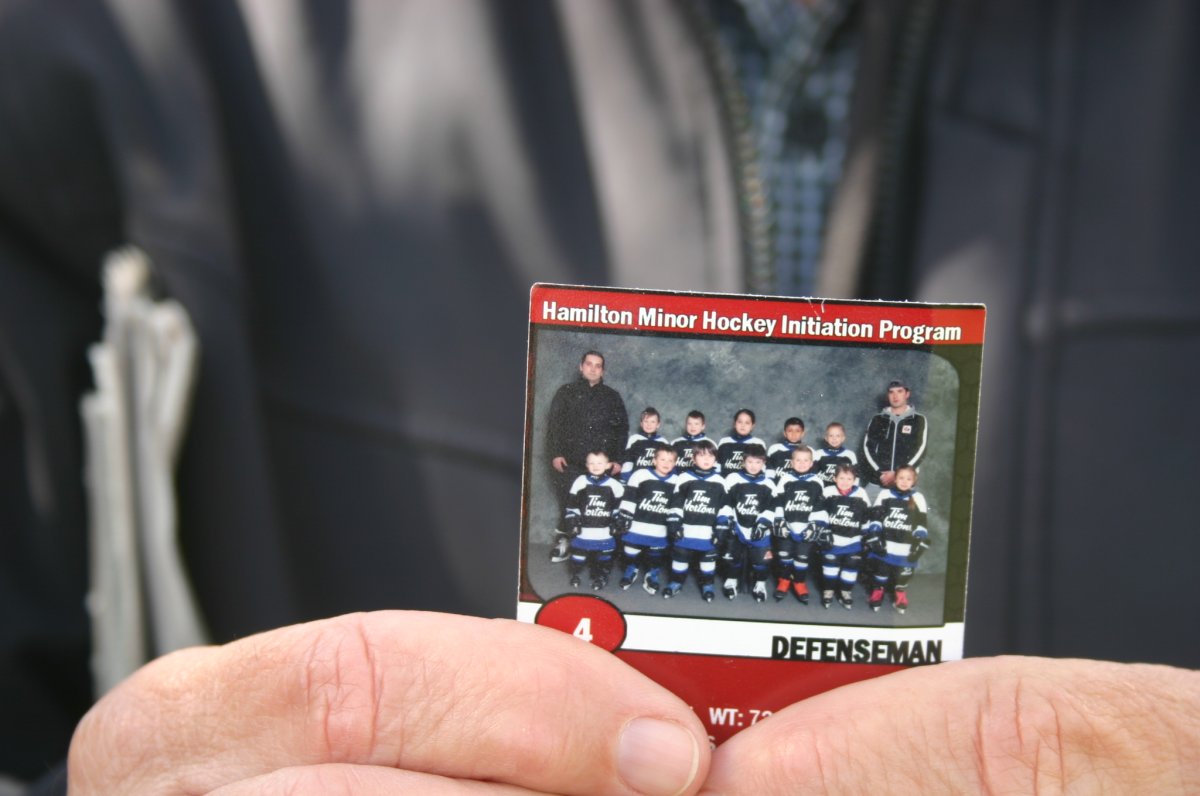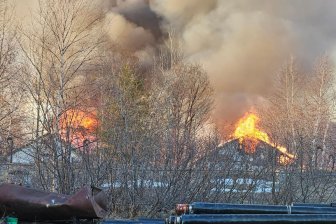Dominik Tomko signed along the dotted line. His flight was booked, his bags packed: He’d agreed to accept $8,000 plus plane tickets in exchange for abandoning his refugee claim, and leaving the country with his wife and two sons.

Then, 17 days before his Aug. 28 takeoff date, he changed his mind. His brother Miroslav’s claim, virtually identical to Tomko’s own, had been approved.
“I didn’t know my brother was going to be accepted. So I was already prepared to go home.”
Tomko would have been one of more than 3,600 people Canada paid to abandon their refugee claims and leave the country since July, 2012, federal statistics show.
And data Global News obtained under federal access-to-information laws indicates most of these refugee claimants are Roma. Citizens of Hungary, Croatia, the Czech Republic and Slovakia make up 61 per cent of the total of people in the program – more than 1,800 by March of this year.
Immigration and Refugee Minister Chris Alexander refused to speak with Global News for this story.

Under the Assisted Voluntary Return and Reintegration Program, unsuccessful refugee claimants who agree to abandon the appeal process are given airfare home, which on average costs $1,500, and “in-kind reintegration assistance” to a maximum of $2,000.
That payment “may be used to pay for services such as assistance creating a small business, obtaining education and/or job training,” CBSA spokesperson Esme Bailey wrote in an e-mail.
The payments are administered by the Geneva-based International Organization for Migration, which describes the program as “politically more palatable and less sensitive than the return of émigrés in shackles.”
Since Canada began the program in 2012, it has spent a total of $7.5 million paying would-be refugees to leave.
Immigration lawyers question how voluntary the program – targeted at people who are often extremely poor, worried about incarceration or deportation and may be unfamiliar with Canada’s refugee appeal system – really is.
“The more appeal rights you give up, the more money you get,” says immigration lawyer Max Berger. (The amount of “in-kind assistance” paid to claimants is halved if you pursue your appeal to the pre-removal risk assessment stage, for example)
“Essentially, it’s a bribe. The Government of Canada is offering refugee claimants money which is tied to them forgoing their appeal rights. Any program that provides an incentive for a person to just give up on their appeal rights puts the administration of justice into disrepute.”
Osgoode Hall immigration law professor Sean Rehaag says the program “takes advantage of people’s poverty to do something that may not be in their best interest to do.”
“Dangling cash, or services in kind, or whatever, depending on what group you fall in, in front of a very vulnerable group of people in exchange for them leaving the country – it makes me nervous.”
Those offered the cash are also dealing with an implicit threat of detention, Berger said.
“If you lose your refugee claim, eventually you get called in to an interview at the CBSA office on Airport Road. Everybody who goes in for this interview knows that there’s a possibility they will go in, but they might not come out, because CBSA has the discretion, always, to detain you. That discretion is if they feel that you’re not co-operating, or they feel that you might be a flight risk, they put the handcuffs on, and you’re not going back outside,” he said.
“So when the CBSA officer offers you this AVRR program, a lot of refugees think: ‘If I say no, if I refuse, this officer might think I’m not cooperating and think I’m a flight risk, and I’m not leaving here,’ so they say yes.”
(CBSA spokesperson Line Guibert-Wolff said in an email participation in the program is “strictly voluntary” and designed for “low-risk” refugee claimants as an “alternative to traditional forced removals.”
“Those who choose to leave Canada through AVRR have no criminal history and enroll in the program on their own volition,” she wrote.)
As for the predominance of Central European recipients, “they are almost always borderline claims,” Rehaag said.
“It’s very clear that Roma are mistreated in Hungary – there’s no question they’re subject to severe discrimination, and there’s no question that there’s been a rise in anti-Roma sentiment, and attacks against the Roma community.
“At the same time, Hungary is a democracy, there is a relatively functional court system, relatively functional police, and so Hungarian claims often fall very close to the line in terms of whether mistreatment is sufficiently serious, and whether the state does enough to protect against that mistreatment. Because they are very close to the line, there is a certain element of subjectivity.”
“I don’t want [my children] to feel what discrimination is”
Tomko, a Roma who lives in Hamilton and works as a bricklayer, filed a refugee claim after arriving in Canada from Slovakia in December, 2009. It was turned down, Tomko explains, on the basis that “myself, and my family, don’t need protection from anything in my country.”
He has run out of appeals. Tomko, his wife and two kids were deported last week.
But both his sons, aged 5 and 7, consider Hamilton home – not Slovakia.
Tomko’s younger son is thriving in a beginner hockey program for small children, he said. But with the family’s scheduled deportation date he seems likely to miss the season.
“Many people had a worse experience than me, but I was beaten up many times,” Tomko said.
“We have a hard time there – every day was basic surviving. I decided I don’t want to raise my kids like this: I want to give them something better than what I got. I don’t want them to feel what discrimination is – that isn’t right.”
Even though he turned down the offer of cash to leave Canada – and, with each appeal, was eligible for less and less money – Tomko thinks the program’s a good thing. And he has nothing but good things to say about his adopted country, even if it’s been less than welcoming.
“It is a help – I cannot say it is not a help. For people who came to Canada and sold their homes to come here and start everything over, and they declined the refugee case, and they are coming back, it’s a big help,” he said.
“I’m surprised that Canada is giving this much money to people who are going home – that’s a big help. Not every country would do this.”
WATCH: Dominik Tomko talks to Global News about his experiences growing up Roma in Hungary
“Now, I know. I know one hundred per cent that Canada refused me.”
Global News caught up with Tomko the day before Halloween at Pearson International Airport. He was waiting for an overnight KLM flight to Amsterdam, with connections to Prague and Bratislava. His wife and children had left on an earlier flight.
His last attempt to stay in Canada had ended Wednesday afternoon with a court decision.
“They kept me waiting until 4:30 in the afternoon – I don’t know if I’m going to pack up my stuff or not. So yesterday was a busy day – I packed my stuff until two o’clock in the morning.”
But he’s still glad he didn’t take the cash and plane ticket offered him. If he hadn’t exhausted all he appeals, he explains, he always would have wondered whether he’d missed an opportunity.
“Now, I know. I know one hundred per cent that Canada refused me.”
For now, Tomko plans to regroup at his parents’ house in Slovakia, then look for construction work in Germany.
THE UNWANTED: READ THE SERIES
Canada’s non-citizens paid to leave, jailed without charge, die in secret
Jailed with no charge, no sentence, no oversight
Canada pays thousands of Roma to abandon refugee appeals, leave country
Deaths in detention: CBSA’s fatal failure to learn from its mistakes
| Deportation, then and now In 2012, Hungary suddenly became the top country for deportations from Canada. The trend follows a sudden influx of Hungarian refugee claimants starting in 2009. |
Tell us your story: Do you have experience as a refugee or immigration detainee in Canada? We’d love to hear it.
Note: We may publish your submission in future stories






Comments